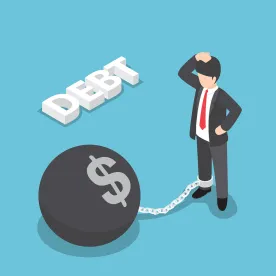On April 30, 2019, the House Financial Services Subcommittee held a hearing entitled “Ending the Debt Traps in the Payday and Small Dollar Credit Industry.” (A video of the hearing is available here.)
The tone and tenor of the hearing became readily apparently during opening remarks offered by Representative Gregory Meeks, in which he analogized small dollar lenders to “no document” mortgage lenders that caused the 2008 financial crisis because of a failure to assess ability to repay. (Mr. Meeks and others who offered similar comparisons failed, however, to acknowledge that that the mandatory underwriting provisions for small dollar loans under the Payday Loan Rule would far exceed similar requirements applicable to credit card accounts, which regularly involve advances of thousands of dollars, and mortgages, which might run into hundreds of thousands of dollars, or more. Compare 12 C.F.R. §§ 1041.5, 1041.6 (Payday Loan Rule) with 12 C.F.R. § 1026.51 (credit cards) and 12 C.F.R. § 1026.43 (residential mortgages).) It was no surprise then that the panel was comprised of five consumer advocates and one community banker from a total of eight panelists with not a single representative from the small dollar industry represented:
- Rev. Dr. Frederick Douglass Haynes, III, Senior Pastor, Friendship-West Baptist Church. (A consumer advocate whose church offers 28% microloans through a federal credit union.)
- Kenneth Whittaker, Southeast Michigan Organizing Director, Michigan United. (A former small dollar loan borrower and consumer advocate.)
- Diane Standaert, Executive Vice President and Director of State Policy, Center for Responsible Lending. (A leading consumer advocate.)
- Todd Ortique McDonald, Vice President and Board Director, Liberty Bank & Trust Company, representing the National Bankers Association. (A representative of a community bank offering small dollar loans below 36% APR.)
- Christopher Lewis Peterson, John J. Flynn Endowed Professor of Law, University of Utah, S.J. Quinney College of Law, and Director of Financial Services and Senior Fellow, Consumer Federation of America. (A consumer advocate formerly employed by the CFPB.)
- Garry Lacy Reeder II, Vice President, Policy and Innovation, Center for Financial Services Innovation. (A consumer advocate formerly employed by the.)
- Robert Sherrill, CEO, Imperial Cleaning Systems. (A former felon that utilized small dollar loans to make ends meet and establish a successful business after serving time.)
- Diego Zuluaga, Policy Analyst, Center for Monetary and Financial Alternatives, Cato Institute (An economist specializing in financial economics.)
Democratic representatives, including Chairman Waters, repeatedly invited panelists to describe the benefits of a 36% APR federal rate cap similar to that imposed for active duty military under the Military Lending Act or, alternatively, asked panelists to advise as to the consequences and pitfalls of “debt trap” loans, apparently in support of Senator Durbin’s bill entitled Protecting Consumers from Unreasonable Credit Rates Act of 2019 introduced on April 29. Other lines of attack included uncorroborated claims that small dollar lenders intentionally target and prey on minorities with “debt traps,” charge these borrowers higher fees than their non-minority customers and actively obtain bench warrants for borrowers’ arrests.
In contrast to this parade of unsubstantiated horrors, Mr. Zuluaga offered statistical support based on his work in the United Kingdom after a draconian rate cap was imposed. Among other things, Mr. Zuluaga testified that the United Kingdom’s regulator estimated an 11% decrease in small dollar lenders after imposition of the rate cap, but that the United Kingdom experienced an actual decline of 56% in 18 months. Similarly, it estimated that borrowers’ access to credit would decline by 21% but experienced an actual decline of 53%. Based on these results, Mr. Zuluaga expressed grave concerns as to the accuracy of the CFPB’s estimate of a 68% decline in lenders, but steady access to consumer credit, after imposition of the Payday Loan Rule.
Despite the vitriol, there appeared to be genuine bi-partisan interest in addressing the needs of the unbanked and underbanked by expanding access to consumer credit through both traditional financial institutions and Fintech channels. (Representative Scott has introduced two pieces of legislation in this regard: the Improving Access to Traditional Banking Act of 2019 and the FINTECH Act of 2019.) With this in mind, representatives focused a majority of their questions on Mr. McDonald to explain Liberty Bank and Trust Company’s “Freedom Fast Loan” with an average principal amount of $6,000 and an average rate of 12.6%. Mr. McDonald explained that it took some time for bank regulators to become comfortable with small dollar loans of this nature and encouraged regulatory sandboxes and Fintech partnerships to introduce new and competitive products. Notably, however, his testimony revealed that the Freedom Fast Loan product may be unprofitable without federal grants, and it was largely left unnoticed that the bank’s ability to repay analysis largely consisted of taking an applicant’s pay stub.
Similar questions were asked of Mr. Reeder, who expressed his belief that Fintech companies offer enormous potential but should be regulated by the CFPB pursuant to a larger participant rulemaking. In this vein, Representative Velasquez voiced concern with a recent trend whereby Fintech companies partner with banks to make loans at rates higher than would otherwise be permitted under applicable state law.
But the relative truce was short lived, as Representative Green concluded the questioning with sparks flying. Mr. Sherrill had earlier testified how payday loans enabled him to change his life after serving his prison sentence when no other credit options were available to him. Now a successful business owner, he represented the sole panelist with direct experience with payday loans to refute the consumer advocates. Mr. Green, however, accused Mr. Sherrill, without evidence, of appearing before the Committee in an attempt to obtain a pardon from President Trump.



 />i
/>i

